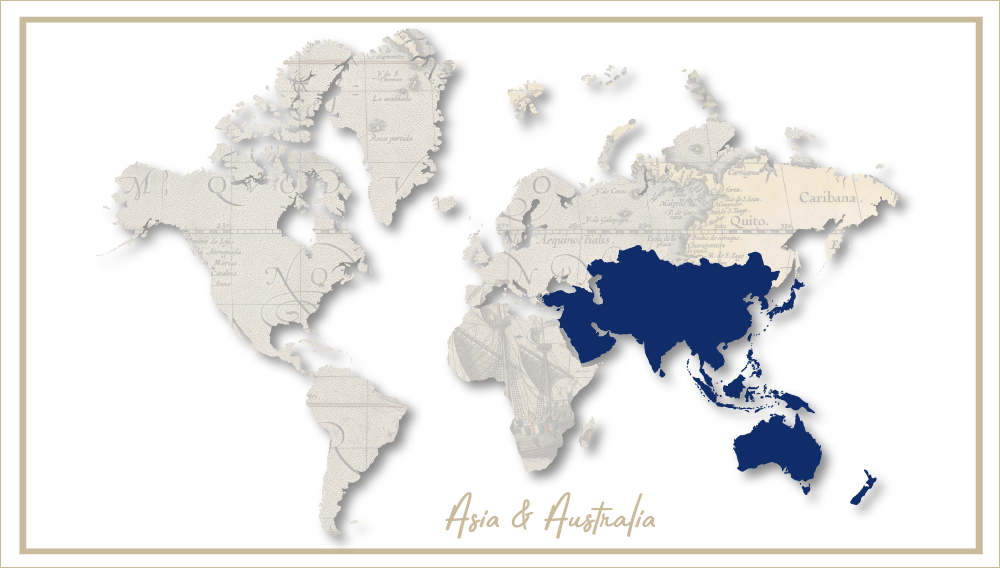Not for the timid or unconnected
In September Baltic Beverages Holding (BBH) announced the official inauguration of its new brewery in Uzbekistan.
It takes some courage to invest in Uzbekistan. Just take Craig Murray’s account of his time as the British ambassador in Tashkent in a post 9/11 world. His book, Murder in Samarkand, which is currently turned into a motion picture, reads like a thriller and one is appalled to find out how Murray finally is removed from his post for criticising human rights abuses by President Karimov’s autocratic regime. If this book provides great insight into the world of modern diplomacy, then a book written by Mansur Maqsudi could provide an even better insight into the world of modern corporate business and how not to do business in Uzbekistan.
Unlike Mr Murray, who was only a foreign diplomat, Mr Maqsudi started out on very good terms with the controversial President Islam Karimov. He was, well, his son-in-law.
According to the Wall Street Journal, which has followed his business venture of bottling and selling Coca-Cola products in Uzbekistan, it was not long after the 1991 Maqsudi-Karimova marriage that Mr Maqsudi and his older brother, Fareed, approached Coca-Cola. Coke at the time considered the possibility of a partnership with an in-law of the top Uzbek leader risky.
But that worry was more than offset by the company’s desire to establish itself in a region long known as a stronghold of rival PepsiCo. With 27 million people, Uzbekistan is the largest nation in Central Asia. Compared with neighbouring Kazakhstan, which has oil, Uzbekistan is poor, and its cotton- and gold-based economy has been declining. The Maqsudis, who are ethnic Uzbeks that had emigrated to the U.S. from Afghanistan, are unusual in having both substantial capital and an intimate knowledge of this dicey market, says the Wall Street Journal.
In 1994 Coke and the Maqsudis formed a joint venture, investing about USD 1.7 million each. Mansur Maqsudi was named president of the new company, Coca-Cola Bottlers Uzbekistan. Through the family-owned ROZ Trading Group Ltd., the Maqsudis eventually acquired a controlling 55 percent share of the venture, with Coke and the Uzbek government owning the rest. The new venture was bad news for Pepsi as the Uzbek government soon ended a multiyear relationship with Coke’s rival in 1994 and gave Coke access to the only big bottling plant in Tashkent that met the American companies’ standards.
Since 1994, Coca-Cola has invested more than USD 100 million in Uzbekistan, making it one of the country’s largest foreign investors. The bottler, run day-to-day by Maqsudi-employed managers, eventually expanded production to three plants.
At some point, the Maqsudi-Karimova marriage fell apart. When the couple separated in 2001, Coca-Cola’s fortunes in Uzbekistan changed. Tax inspectors, fire inspectors, customs inspectors, and even an antinarcotics official, descended on Coke’s bottling plant in Tashkent. End of story? No, Coke is still in business in Uzbekistan. But within months, the Uzbek courts had stripped ROZ of its share in the bottling plant. That way the Maqsudis were out. Pushed out of Uzbekistan and out of their business. In 2006 the Maqsudis filed for binding arbitration at an Austrian tribunal, under a provision of the original joint venture agreement with Coke, seeking more than USD 100 million in damages from the company. The award is still pending and no news how long it might take for the court to make a decision was to be had from the Maqsudi’s lawyers
In the meantime, Baltic Beverages Holding (BBH) which is a 50:50 owned joint venture between Carlsberg Breweries and Scottish & Newcastle, is pushing further into Central Asia. BBH already operates 19 breweries in Russia, Ukraine, the Baltic countries and Kazakhstan, with Uzbekistan the latest venture. In Uzbekistan BBH formed Sarbast Plus, a joint venture with a local partner, of which BBH controls 75.1 percent. No mention was made of who the local partner is, but trust him to be on favourable terms with the powers-that-be.
In any case, the two partners have invested approximately EUR 50 million into building the greenfield brewery in Tashkent, as well as in training and development of marketing and distribution systems.
The brewery started shipments of its first local brand, Sarbast, in July 2007. The initial planned capacity of the plant is one million hl per annum, with the potential to double the capacity by the end of 2008. Sarbast, says BBH, means ‘free, independent’ in the Uzbek language.
The new operation creates 300 new jobs, while supporting new jobs in auxiliary companies.
With an annual average income of USD 520 in 2005 (World Bank data) and a growing level of beer consumption (ca 10 litres per capita), BBH believes that the Uzbek market has the potential to grow strongly in the future. According to official statistics, the capacity of beer production in Uzbekistan since 1999 has increased constantly at the average rate of 13 percent a year.
A recent official Uzbek report says that the beer market has several large producers: Uzbek-American Inter-Rohat JV (brand: Kibray, Tashkent region), Mehnat-Pivo (Patriot; Tashkent region), Uzbek-Czech Samarkand-Praga-Pivo JV (Pulsar; Samarkand), Raupxon (Yunusabad; Tashkent city), Almalykpivo (Tashkent region), Uzbek-German Ziyobakhsh Uni Trading JV (Asia; Bukhara city), and several microbreweries such as Besh-Yogoch Pivo LLC, Gambrinus LLC, Kamolot Mega JV, Tohiriy, and plants within the Navoi Mining and Smelting Plant (Zarafshan and Uchkuduk).
The projected and installed annual capacity of the five major brewing companies is 900,000 hl of beer. The level of capacity used is just above 50 percent. The installed capacity of six mini-breweries is 5,000 hl.
The sales price for a half a litre of bottled beer ranges from UZS 300 to 600 (EUR 0.16 – 0.33) and for a litre from UZS 800 to 1,300 (EUR 0.44 – 0.72).

